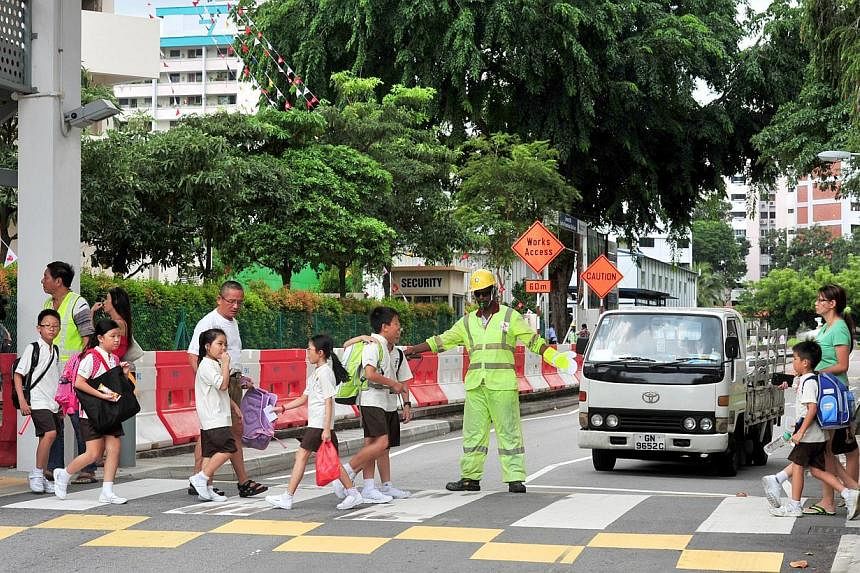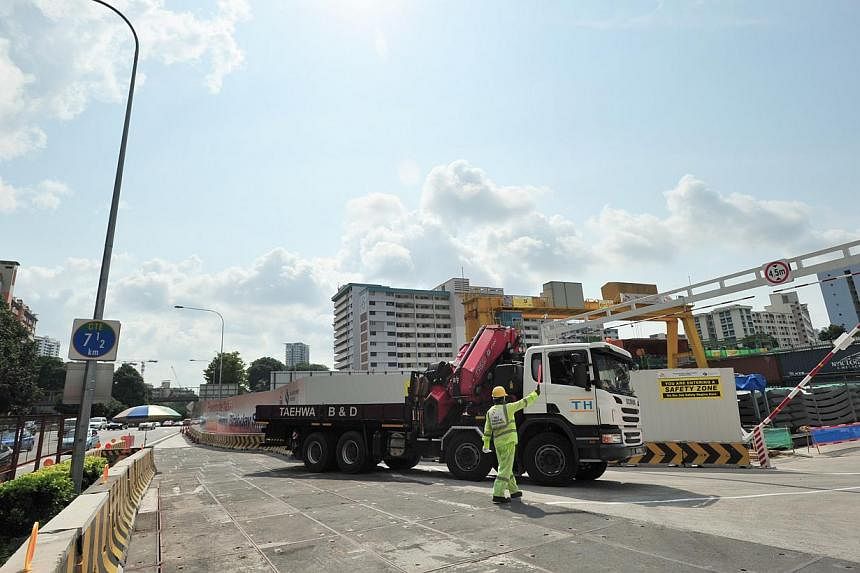Two temporary roads linked to expressways have been built to allow heavy vehicles to turn off directly into construction sites, bypassing schools and residential areas.
The 200m-long special access roads, which cost $4 million, are among safety measures adopted by Singapore Power as it undertakes a $2 billion project to upgrade the island's power network.
The precautions, put in place especially for young children, come in the wake of a rise in fatalities from accidents involving heavy vehicles. There were 44 such deaths last year, up by about 40 per cent from 32 in 2012.
Last year, a concrete mixer truck knocked down and killed two young brothers in Tampines, leading to much public outcry. In January, a motorcyclist was decapitated after his bike collided with a tipper truck in Tuas.
Singapore Power began construction work on a 35km network of deep underground tunnels to house electricity cables last year. Eighteen worksites were set up across the island to build the tunnels. Two sites - in May Road and Kallang - were found to have high human traffic.
"When we first started on the project, we were concerned when we saw schoolchildren sitting on the sides of the road and their parents parking," Mr Michael Chin, Singapore Power's managing director of special projects, told The Straits Times yesterday, referring to the May Road site.
"So we decided to go beyond established industry practices for safety to minimise any risk," he added.
Singapore Power said it consulted the community and built an extra lane to the Central Expressway in the city-bound direction before the Balestier Road exit.
This allows heavy vehicles to enter and exit the May Road construction site without taking the narrow roads around Hong Wen School and the residential neighbourhood around McNair Road, Towner Road and May Road. This road opened in May.
Earlier in January, another road was created off the slip road alongside the Pan-Island Expressway, in the direction of Bendemeer in Geylang Bahru.
Construction vehicles now do not drive through Geylang Bahru and Geylang Bahru Lane, or around Kallang Basin Swimming Complex, to enter or exit the Kallang site.
The Land Transport Authority said it does not track the number of temporary roads created for easier access to construction sites.
The Straits Times understands that such a practice is not new, though most of the temporary roads built so far were aimed at easing congestion.
For example, an access road to a controversial foreign worker dormitory in Serangoon Gardens was built in 2009 so that buses transporting the workers do not wind through the estate, which already has congestion problems.
Besides building the two new access roads, Singapore Power also deploys traffic marshals at nearby schools and conducts road safety talks for the students.
Heavy vehicle traffic during school peak hours is restricted and barricades are installed to prevent jaywalking around the construction sites.
Retiree Lee Hee Ying, 64, said she makes it a point to walk her nine-year-old grandson to school every day.
"It used to be scary to see all the big vehicles passing by, so it is more reassuring now with all the safety measures in place," she said in Mandarin. Her grandson attends Hong Wen School.
For site supervisor Dave Chew, 51, who has lived in the May Road area for about 30 years, the new roads also ease traffic congestion.
"It's not only about safety as the roads used to be packed with cars of parents and heavy vehicles, but now the flow is much smoother," he said.



